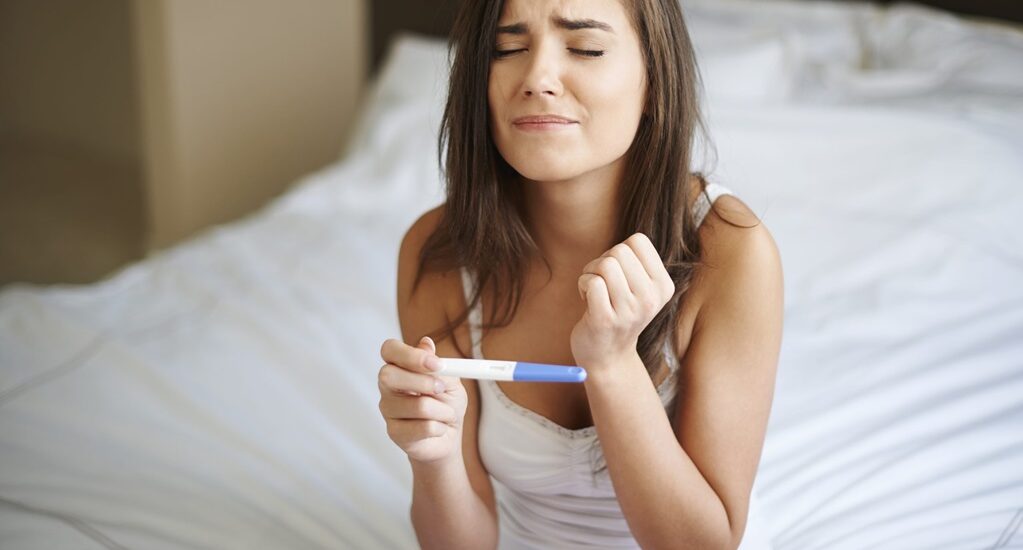Finding out you’re pregnant can be one of the most exciting and emotional moments in life. But before you even take a pregnancy test, your body might be giving you some signs. These signs are called early pregnancy symptoms.
In this article, we’ll walk you through the most common early pregnancy symptoms, how soon they can appear, what they feel like, and when to take a test. Let’s break it down together, in simple words.
Table of Contents
What Are Early Pregnancy Symptoms?
Early pregnancy symptoms are the changes your body goes through after the fertilized egg attaches to your uterus. These signs usually show up even before your period is late.
Not everyone will have the same symptoms. Some women feel pregnant just days after conception, while others might not notice anything until weeks later. That’s totally normal.
Common Early Pregnancy Symptoms
Let’s go over the most common early signs of pregnancy. If you notice a few of these, it might be time to take a test.
Missed Period
A missed period is often the first and most noticeable sign. If your cycle is regular and you’re late, pregnancy might be the reason. But keep in mind, stress, diet, or health issues can also delay your period.
Feeling Tired All the Time
Suddenly feeling more tired than usual? Fatigue is a common early symptom. Your body is working hard to support the baby, even in the very beginning. Hormone changes, especially rising progesterone, can make you feel sleepy and drained.
Nausea or Morning Sickness
This is a classic pregnancy symptom. Some women feel sick to their stomach in the morning, while others feel it all day. It can start as early as two weeks after conception. You might also notice a stronger sense of smell or dislike certain foods.
Sore or Swollen Breasts
Your breasts might feel tender, heavy, or fuller than usual. They may also look more veiny. This happens because your body is getting ready to feed your baby later on.
Needing to Pee More Often
If you find yourself rushing to the bathroom more than usual, this could be another early sign. Pregnancy increases the amount of blood in your body, which means your kidneys have more work to do.
Mood Swings
Hormones can affect your mood. You might feel more emotional or moody than usual. Some people even describe it as feeling like PMS times ten.
Light Spotting or Cramping
A small amount of bleeding or cramping might happen when the fertilized egg attaches to your uterus. This is called implantation bleeding, and it usually happens around 6–12 days after conception.
Food Cravings or Aversions
Some women crave strange foods, while others can’t stand the smell of things they usually love. These changes can be due to shifting hormones.
Feeling Dizzy or Lightheaded
Low blood sugar, lower blood pressure, and changes in circulation can make you feel a little dizzy in early pregnancy.
A Bloated Feeling
Hormones can also slow down your digestion, leading to bloating — similar to how you might feel before your period.
Less Common Early Pregnancy Symptoms
Not every sign is obvious. Some symptoms can be mistaken for other things, but they still might mean you’re pregnant.
Headaches
Hormone changes can cause headaches in some women. If you’re suddenly getting more headaches than usual, and it’s not your typical time for them, it could be pregnancy-related.
Constipation
Your digestive system may slow down due to hormone changes. If you notice you’re more backed up than usual, this could be an early symptom.
Back Pain
Some women report lower back pain in early pregnancy, although it’s more common later on.
How Soon Can You Feel Early Pregnancy Symptoms?
It depends on your body, but many early symptoms start about one to two weeks after conception. That’s even before your period is due.
Here’s a rough idea of the pregnancy timeline:
- Week 1–2: Your body is preparing to release an egg.
- Week 3 (Ovulation): The egg is fertilized.
- Week 4 (Implantation): You might start to feel symptoms like cramping or spotting.
- Week 5+: More symptoms show up, such as fatigue, sore breasts, or nausea.
When Should You Take a Pregnancy Test?
A pregnancy test works by checking for a hormone called hCG in your urine. This hormone is only made after the fertilized egg attaches to your uterus.
Best Time to Test
- The most accurate time to take a test is after your missed period.
- Some sensitive tests claim to work a few days before, but results are more reliable after your period is late.
If your first test is negative but you still feel pregnant, wait a few days and test again. Sometimes it takes longer for hCG to build up in your system.
What Should You Do If You Think You’re Pregnant?
If you think you might be pregnant, here’s what you should do:
Take a Home Pregnancy Test
This is the first step to confirm pregnancy. It’s quick, private, and available at most stores.
Call Your Doctor or Midwife
Once you have a positive test, make an appointment. They can do a blood test and talk to you about prenatal care — that means taking care of yourself and your baby during pregnancy.
Start Taking a Prenatal Vitamin
Folic acid is super important in early pregnancy. If you haven’t already, start taking a daily prenatal vitamin with at least 400–600 mcg of folic acid.
What If You Don’t Feel Any Symptoms?
Not having symptoms doesn’t mean anything is wrong. Some women feel perfectly normal in early pregnancy. Every body is different.
Also, some symptoms can come and go. One day you might feel sick, the next day you might feel fine. This is normal too.
Are Early Pregnancy Symptoms the Same as PMS?
Many early pregnancy symptoms feel like premenstrual syndrome (PMS). Things like:
- Cramps
- Bloating
- Mood swings
- Sore breasts
The main difference is that PMS goes away when your period starts. If your period is late and symptoms stick around or get stronger, pregnancy could be the reason.
Final Thoughts
Early pregnancy symptoms can be exciting, confusing, or even scary — especially if it’s your first time. The good news is, your body is smart. It knows what to do. These early signs are your body’s way of preparing for the journey ahead.
To sum it up:
- A missed period is usually the first sign.
- Other symptoms can include fatigue, sore breasts, nausea, and mood swings.
- Every woman’s experience is different — some feel symptoms early, some later.
- If you think you might be pregnant, take a home test and call your doctor.






